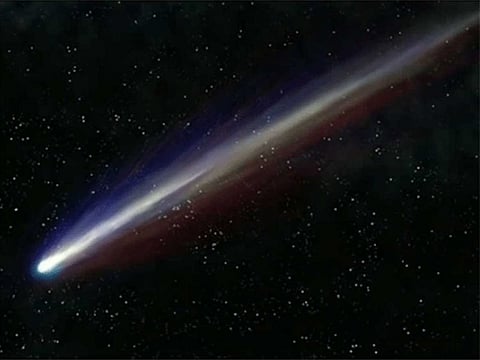International Asteroid Day: See asteroids zip across Dubai night sky on June 30
Dubai Astronomy Group invites residents to Al Thuraya Astronomy Centre in Mushrif Park

Dubai: Astronomy enthusiasts are gearing up for an event on June 30. The Dubai Astronomy Group is inviting people to Al Thuraya Astronomy Centre in Mushrif Park to mark the International Asteroid Day.
The occasion is observed globally on June 30. Asteroid Day aims to raise public awareness about asteroid impact hazards and inform the public about the crisis communication actions to be taken at the global level in case of a credible near-Earth object threat.
Siberia Tunguska event
This is observed globally each year on the anniversary of the Siberia Tunguska event, the largest asteroid impact in recorded history, to raise public awareness about the asteroid impact hazard.
The Tunguska event was an approximately 12-megaton explosion that occurred near the Podkamennaya Tunguska River in Yeniseysk Governorate, Russia, on the morning of June 30, 1908.
The Tunguska event was caused by an asteroid that bounced back to space.
What are Asteroids?
Asteroids are small rocky body that orbits around the sun. Mostly, they are found between the orbits of Mars and Jupiter which is known as the ‘Asteroid belt’.
The rocky-metallic objects range in size from about the size of pebbles to around 600 miles across.
About the Dubai event
The evening will commence with a lecture, taking participants on a journey through the formation of our solar system, the asteroid belt, near-Earth asteroids, and the vital role of asteroid research in unravelling the secrets of the universe.
Expert astronomers will shed light on these celestial wanderers, fostering a deeper understanding of their composition and their impact on our planet.
One of the highlights of the event will be the opportunity to observe two bright asteroids through telescopes. Guests will witness the celestial dance of Ceres, the brightest asteroid, and Pallas, the second brightest, as they grace the night sky. In addition, attendees will be observing the brilliance of Venus and Mars during their respective positions.
Ticket prices range from Dh40 to Dh60. However, due to limited space, early registration is recommended.

